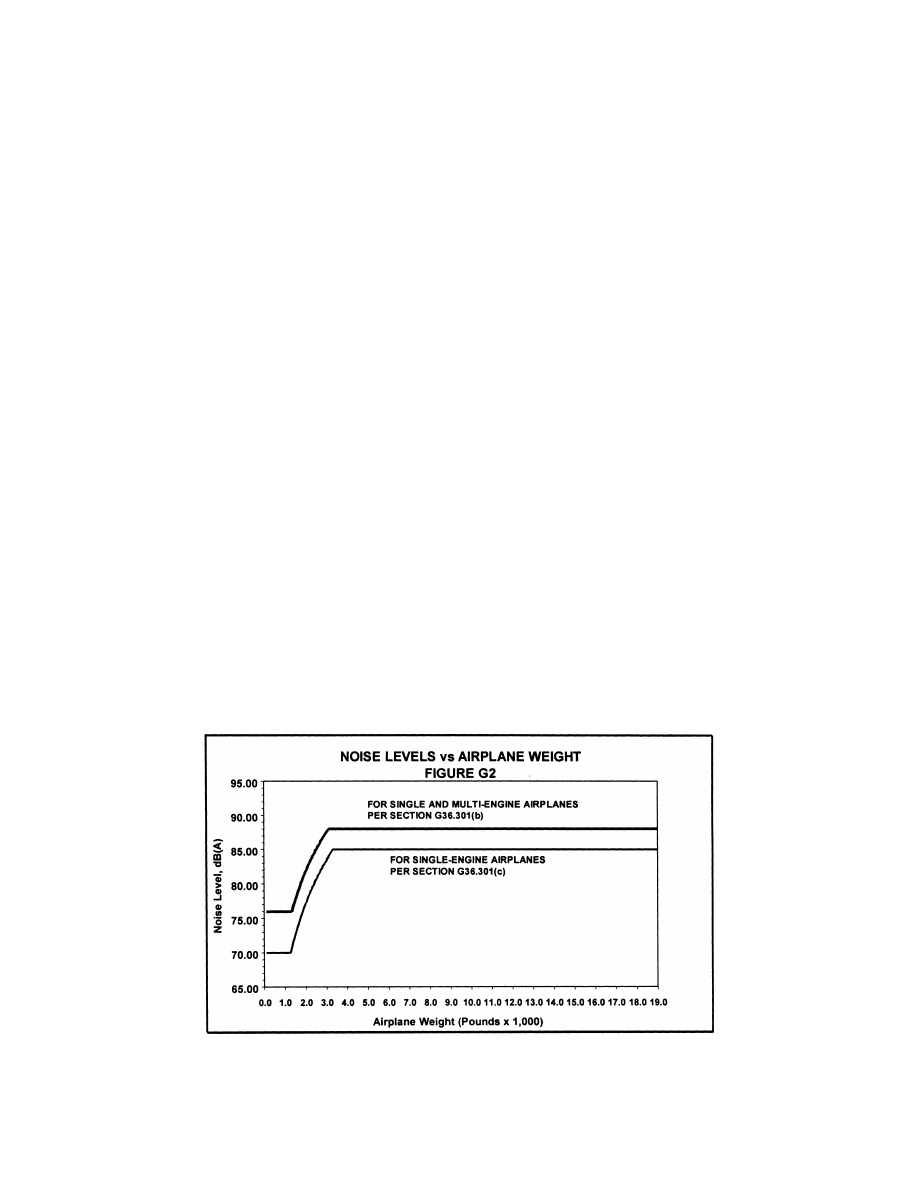
816
14 CFR Ch. I (1–1–19 Edition)
Pt. 36, App. G
made using the nominal value of k when
M
T
is larger than M
R
. The reference hel-
ical tip Mach number M
R
is the Mach
number corresponding to the reference
conditions (RPM, airspeed, temperature)
above the measurement point.
(4) Measured sound levels in decibels must
be corrected for engine power by algebra-
ically adding an increment equal to
Delta (3) = K
3
log (P
R
/P
T
)
where P
R
and P
T
are the test and reference
engine powers respectively obtained from
the manifold pressure/torque gauges and
engine rpm. The value of K
3
shall be de-
termined from approved data from the
test airplane. In the absence of flight
test data and at the discretion of the Ad-
ministrator, a value of K
3
= 17 may be
used.
Sec. G36.203 Validity of Results.
(a) The measuring point must be overflown
at least six times. The test results must
produce an average noise level (L
Amax
) value
within a 90 percent confidence limit. The av-
erage noise level is the arithmetic average of
the corrected acoustical measurements for
all valid test runs over the measuring point.
(b) The samples must be large enough to
establish statistically a 90 percent con-
fidence limit not exceeding
±
1.5 dB(A). No
test results may be omitted from the aver-
aging process unless omission is approved by
the FAA.
PART D
—
NOISE LIMITS
Sec. G36.301 Aircraft noise limits.
(a) Compliance with this section must be
shown with noise data measured and cor-
rected as prescribed in Parts B and C of this
appendix.
(b) For single-engine airplanes for which
the original type certification application is
received before February 3, 2006 and multi-
engine airplanes, the noise level must not ex-
ceed 76 dB(A) up to and including aircraft
weights of 1,320 pounds (600 kg). For aircraft
weights greater than 1,320 pounds, the limit
increases from that point with the logarithm
of airplane weight at the rate of 9.83 dB (A)
per doubling of weight, until the limit of 88
dB (A) is reached, after which the limit is
constant up to and including 19,000 pounds
(8,618 kg). Figure G2 shows noise level limits
vs airplane weight.
(c) For single-engine airplanes for which
the original type certification application is
received on or after February 3, 2006, the
noise level must not exceed 70dB(A) for air-
craft having a maximum certificated takeoff
weight of 1,257 pounds (570 kg) or less. For
aircraft weights greater than 1,257 pounds,
the noise limit increases from that point
with the logarithm of airplane weight at the
rate of 10.75dB(A) per doubling of weight,
until the limit of 85dB(A) is reached, after
which the limit is constant up to and includ-
ing 19,000 pounds (8,618 kg). Figure G2 depicts
noise level limits for airplane weights for
single-engine airplanes.
VerDate Sep<11>2014
12:50 Apr 30, 2019
Jkt 247046
PO 00000
Frm 00826
Fmt 8010
Sfmt 8006
Y:\SGML\247046.XXX
247046
ER04JA06.033</GPH>
spaschal on DSK3GDR082PROD with CFR